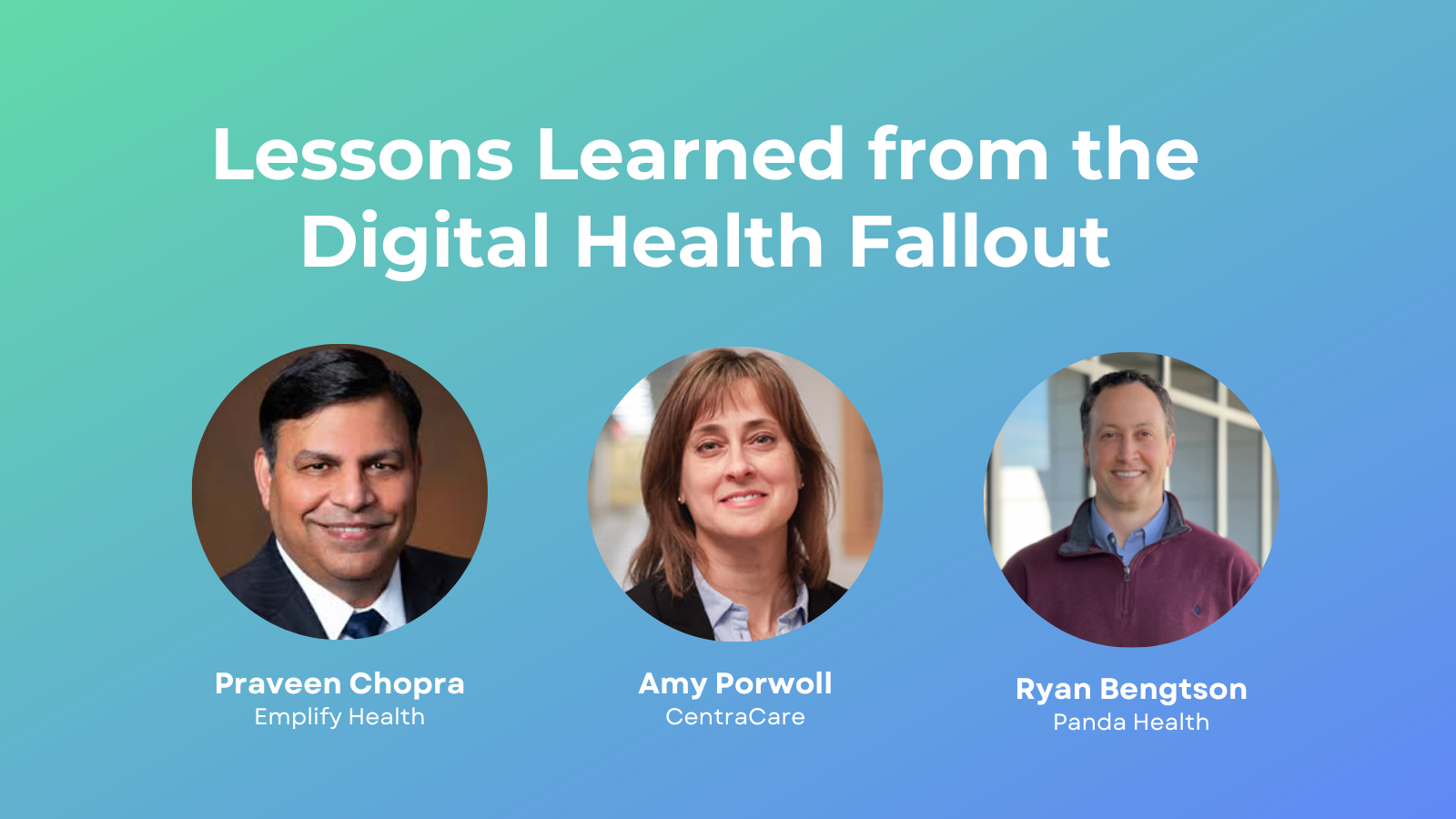Earlier this month, Panda Health hosted a webinar with members Amy Porwoll (CIO, CentraCare) and Praveen Chopra (CDIO, Emplify Health). Together, they shared their experiences and strategies in navigating the complex landscape of digital health. This webinar, held in partnership with CHIME, brought together seasoned CIOs to discuss their successes, challenges, and lessons learned in digital transformation.
The Digital Health Frenzy
It’s no surprise that hospital leaders are often inundated with requests and solicitations from vendors across multiple categories. In fact, in prior research, Panda found that the majority of health system executives receive at least 10 unsolicited emails per week about digital health solutions, with many receiving as many as 50 or more. Porwoll highlighted that the primary source of the frenzy at CentraCare indeed stems from unsolicited vendor emails, but also from employees who attend conferences and learn about new technologies.
So how are these requests managed? Both CentraCare and Emplify Health shared an approach that focuses on alignment with overall organization strategy. A few key highlights included:
- A formal approval process involving cross-functional leadership from various departments to evaluate and execute new ideas
- Assessment of ROI of the product: determine the value that it truly provides to your organization–and if it genuinely addresses your needs
- Evaluate if it complements existing systems: If it’s important to streamline your tech stack, consider a solution that matches your current systems to mitigate provider abrasion
- Undergo pilot testing: If you can work with the solution on a 90-day pilot, you have the opportunity to evaluate the product to see if it can meet objectives
If you find yourself caught in a digital health frenzy, consider taking a step back. Stay focused on your strategic goals to avoid unnecessary technological distractions.
Ensuring Sustainability to Avoid a Fallout
Once you’ve deployed a new digital health technology, you must plan for sustainability. Chopra shared the importance of establishing a well-defined and agreed-upon service level agreement (SLA)–one that covers performance expectations as well as the type of support and resources that the vendor will provide.
If you’re signing on with a startup, understanding the background and intentions of early-stage technology companies is critical. Key questions you should consider asking include:
- Who is the founder? Most of the time, you will be meeting with a sales representative
- What is the ownership structure?
- What is the philosophy of any venture capital firms involved? It is important to understand if the investors are looking for a quick exit or are committed long term
- What is the culture of the organization? Who are they, and where are they heading?
Another opportunity would be to consider a phased approach to the contract. Porwoll shared that CentraCare ensures sustainability by adopting a phased approach–only moving forward with a new technology if certain metrics are met. For foundational systems, however, she typically enters into long-term contracts.
Lessons Learned from Past Implementations
In late 2023, Panda Health issued The Tipping Point report that uncovered levels of satisfaction as it relates to vendors and the expiration of contracts. Questions that hospital leaders ask when evaluating vendors can often come from past experiences–i.e. the things that weren’t routinely asked about even five years ago, but they are now. Porwoll and Chopra shared their top questions:
- Does this technology augment our foundational platform?
- Is it duplicative of a capability we already have?
- Is it solving a need? Not a want.
- Do we have strong use cases for it?
- Are you willing to do a pilot test with us?
- What is your mission and purpose of your organization?
- How much do you invest in R&D?
- Where are you going with AI?
- What kind of security assessments have been done? Is the risk low?
- Ask the who (who will be the main representative, who is the leader of sales, etc.)
At the end of the day, it’s important to consider how much skin in the game you want the vendor to have with you. Are they willing to offer an out-clause if you don’t hit your key metrics during the pilot? If the vendors aren’t willing to have that conversation, they might not be the right partner for you.
Finding the right partner is tough, but following guidelines from leaders in the industry is a step in the right direction. Tune into the webinar to hear directly from our speakers.
